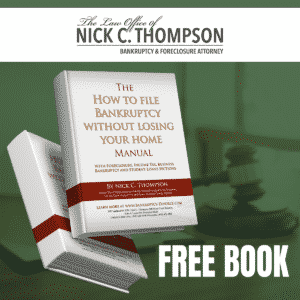In Chapter 7 or Chapter 13, the bankruptcy trustee conducts the 341 hearing. Although we call it a hearing, it is far more like a deposition. The bankruptcy trustee asks questions about the accuracy of the petition, requests documents, and reviews assets and income. Most people think the bankruptcy trustee is a judge but, that’s incorrect. Rather, he is normally another attorney with an accounting background or a CPA license. Remembering that you are under oath in a federal court proceeding, click here for the questions the Chapter 7 Trustee asks during the 341 hearing.
Chapter 7 & Chapter 13 Bankruptcy or Panel Trustees & the 341 Hearing
The Chapter 7 trustee receives pay of about $60–$70 dollars per petition review. Additionally, if a trustee finds assets and sells them he gets about a 25% commission on the first $5,000 on a sliding scale. If the petition is accurate and the documentation supports it, the bankruptcy trustee quickly does his job and goes on to the next case. He may review up to 10 cases every 30 minutes.
His duty is to ensure that the petition is accurate and to pay creditors from any available assets. For some richer clients it may be worth losing a 10,000 car it to eliminate $25 million in debt. Sort of like sacrificing a pawn to win the game. But, there are rarely any assets for the trustee to take after exemptions.
If your petition is not accurate it causes a trustee added work. An inaccurate petition may result in a second hearing, cause you to lose property, or may result in an audit similar to an IRS audit called a 2004 deposition which may last hours. Therefore, it is very important that all the information you give to us is accurate and complete.
Your US bankruptcy trustee.
Chapter 7 debtor has a responsibility to use his best efforts to repay debt. Occasionally, some debtors attempt to hide income in order to file a Chapter 7. This rarely works and debtors must avoid this at all costs. Of course, the US trustee reviews every petition for accuracy. However, sloppy petitions and debtors with high incomes over $100,000 per year receive more intensive audits.
Additionally, petitions are also audited for abuse. This means that people with high incomes who Chapter 7 petitions that include luxury expenses that abuse the system will be required to convert to Chapter 13. Moreover, if the petition is inaccurate or does not supply the required documentation the petition may be dismissed.
The questions at a 341 hearing
Standard Trustee Questions 341 Meeting of Creditors for Mr Reisz. Questions for other trustees are similar.
- Do you swear or affirm the testimony you are about to give is the truth, the whole truth, and nothing but the truth?
- Please show me your photo and social security number IDs (to be provided prior to meeting for teleconference meetings).
- State your name.
- Is the address listed on the petition your correct address?
- Did you sign the petition, schedules, statements, and related documents that your attorney filed with the court?
- Did you read those documents before you signed them?
- Are you personally familiar with the information contained in those documents?
- To the best of your knowledge, is the information contained in the petition, schedules, statements, and related documents true, and correct?
- Are there any errors or omissions to bring to my attention at this time?
- Are all your assets identified on the schedules? Have you listed all your creditors on the schedules?
- Have you previously filed bankruptcy?
- What is the address of your current employer?
- Is the copy of the tax return you provided a true copy of the most recent tax return you filed?
- Do you have a domestic support obligation? This means child support, maintenance, or alimony.
- Have you read the Bankruptcy Information Sheet provided by the United States Trustee?
- Are you aware you could have filed bankruptcy under a different chapter of the bankruptcy code, for example, Chapter 13?
- Are you reaffirming any debts?
- Are you aware you are not required to reaffirm any debts, but if you do you are required to pay those debts?
- Are you aware of the potential consequences of seeking a bankruptcy – including it will be carried on your credit history?
- Are you aware of the consequences of receiving a discharge?
The bottom line.
Avoid filing errors and sloppy petitions by seeking out a bankruptcy attorney with the experience you need. Doing so ensures a smoother experience with the bankruptcy trustee. So, always make sure the information you give to your lawyer is accurate. Moreover, do not hide income, assets, or transfer assets just before filing bankruptcy. If you do, it might lead to delays and excessive legal and personal costs.
 Resources for Bankruptcy
Resources for Bankruptcy
Louisville Kentucky Bankruptcy Forms
Other Related Information
Louisville Kentucky Chapter 7 • 341 Hearing • Video
Filing Chapter 7 & Chapter 13 Bankruptcy • Video
Louisville Kentucky Panel Trustees
Trustee Questions at the Bankruptcy 341 Meeting
If you are facing bankruptcy, don’t delay. Contact my office right away to start the conversation. Nick C. Thompson, Bankruptcy Lawyer: 502-625-0905



